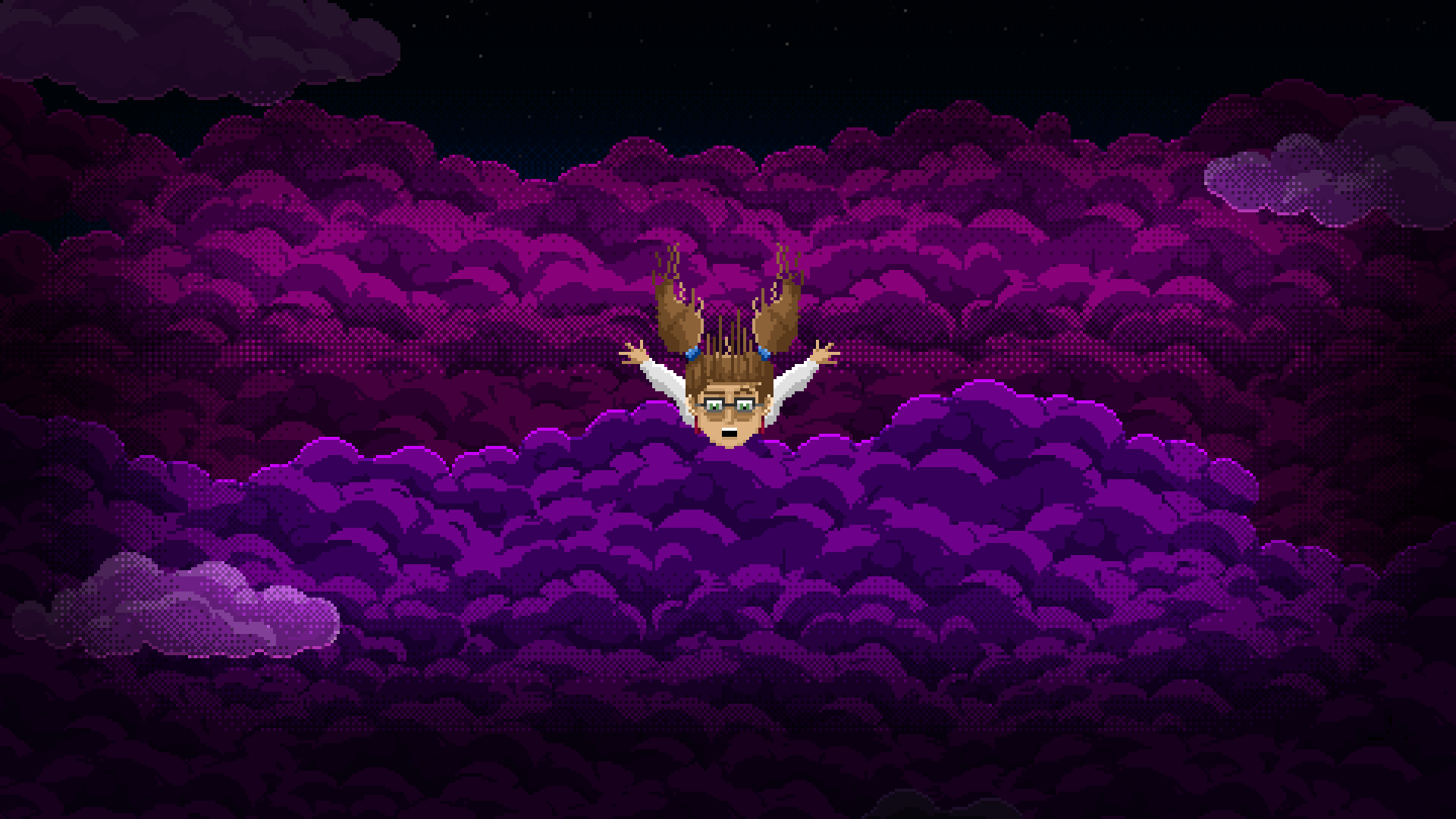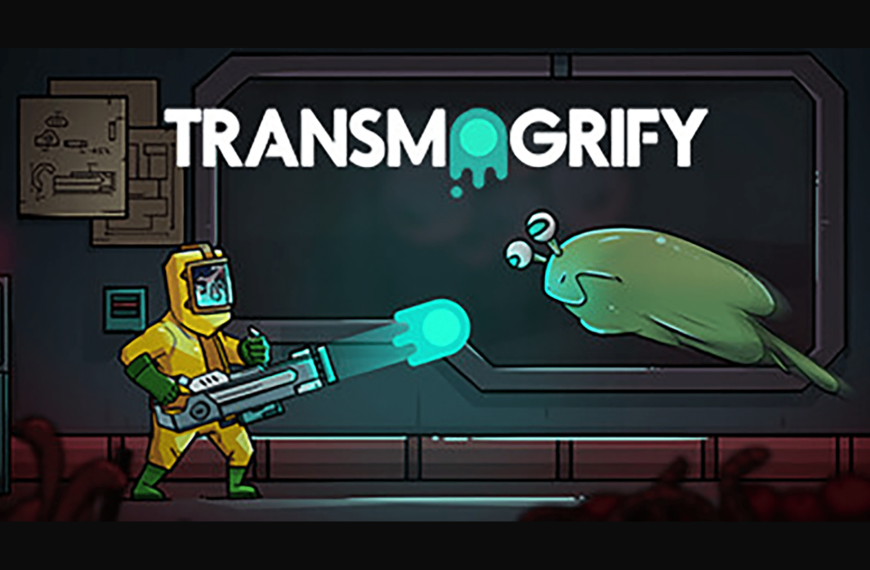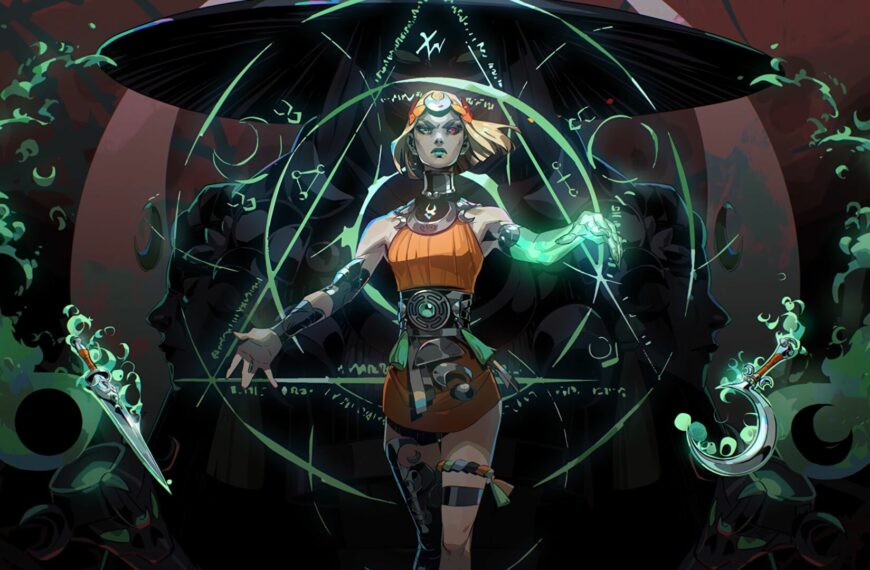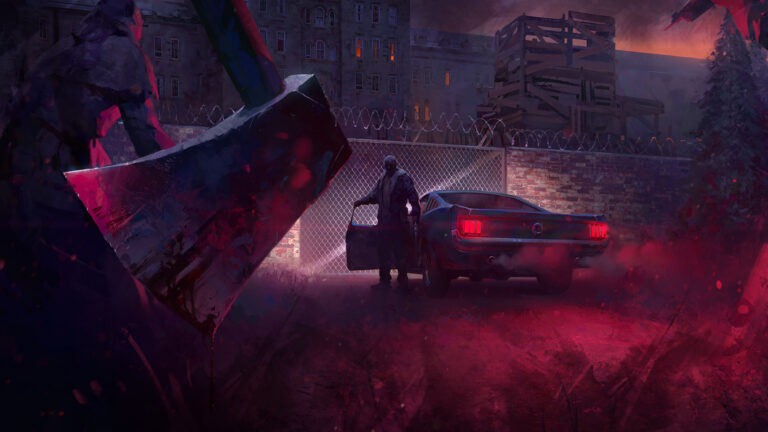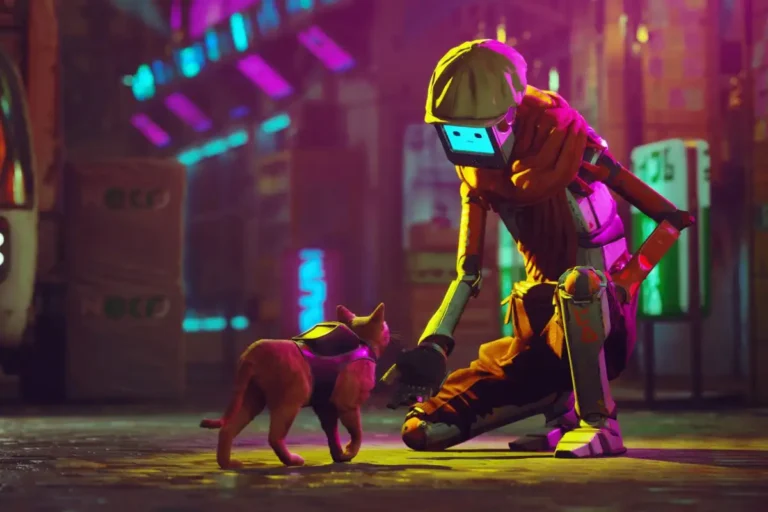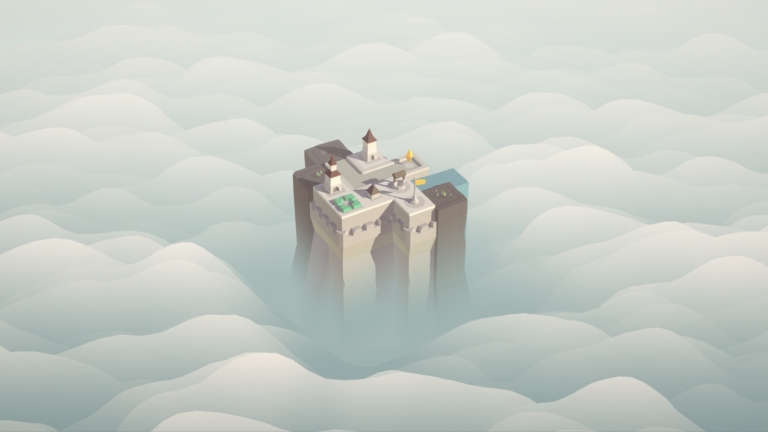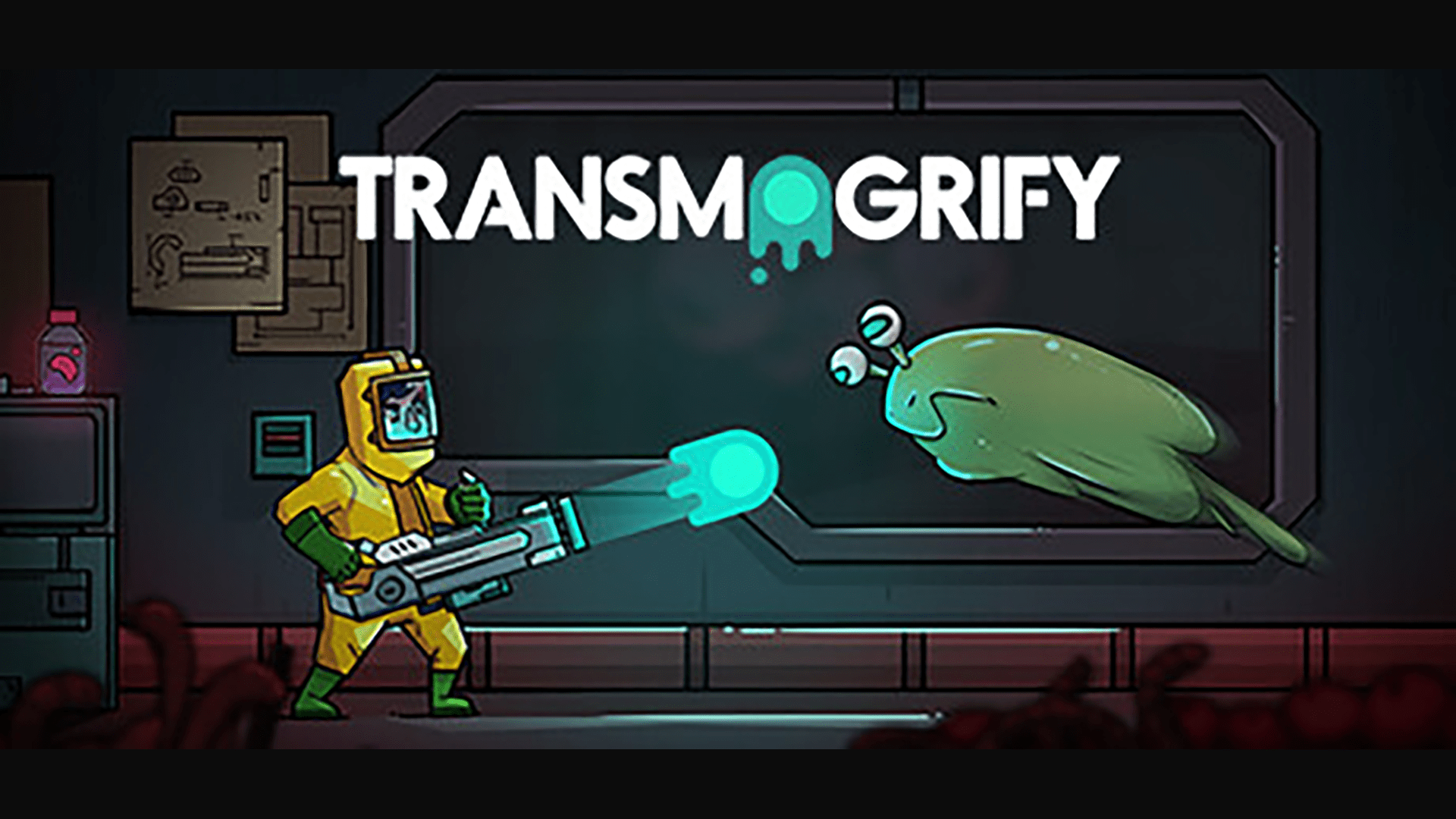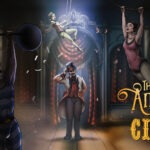A dreamy point-and-click adventure imbued with British whimsy and oddball humour, Lucy Dreaming is a unique addition to the world of adventure games. In it, you play Lucy, a Northern gal who’s having trouble sleeping due to her weird dreams. Plot twists, puzzles, and plenty of non-IP infringing toys and adventure game meta-jokes ensue. Not to mention an eccentric cast of husky-voiced outcasts and weirdos, including one very Satanic librarian.
You start out at your parent’s house, a place that is surreal, and every bit the epitome of British middle-class life. “People always say to write what you know, and I consider myself to be well and truly a part of the British middle class,” says Tom Hardwidge, developer of Lucy Dreaming and co-founder of Tall Story Games.
“The concept of a class system seems to be a uniquely British thing, and it underpins so many of the choices we make on a daily basis, from the clothes we wear and the food we buy to the kind of words we use in conversation, it’s a system which is thoroughly deserving of satirisation on every level and is absolutely packed with opportunities to do so.”
Along with its gentle roasting of the British middle-class and its sometimes surreal institutions, Lucy herself is wonderfully self-deprecating. Everything is a target for her acerbic humour. “Self-deprecation is something that the British are traditionally quite good at,” adds Hardwidge. “And I feel that being able to see the ridiculousness in your own life and laugh at it is vital to keep your own ego in check.”
When you’re not drifting through your own dreams with your trusty teddy bear companion in tow in Lucy Dreaming, you solve whimsical point-and-click puzzles that are as deadpan as they are irreverent. Eventually, you’ll explore dark family secrets and a murderous mystery in the local town.
It’s hard to put Lucy Dreaming into a genre, as it is rather distinct. This, it turns out, was a pointed design choice by Hardwidge. “We wanted to create a game which wasn’t tied to a specific theme — like space, fairy tales, or pirates,” he says. “Dreams offer infinite possibilities in this regard and provide a mechanic we could use to easily vary the content, characters, and overall theme as you progress through the game.”
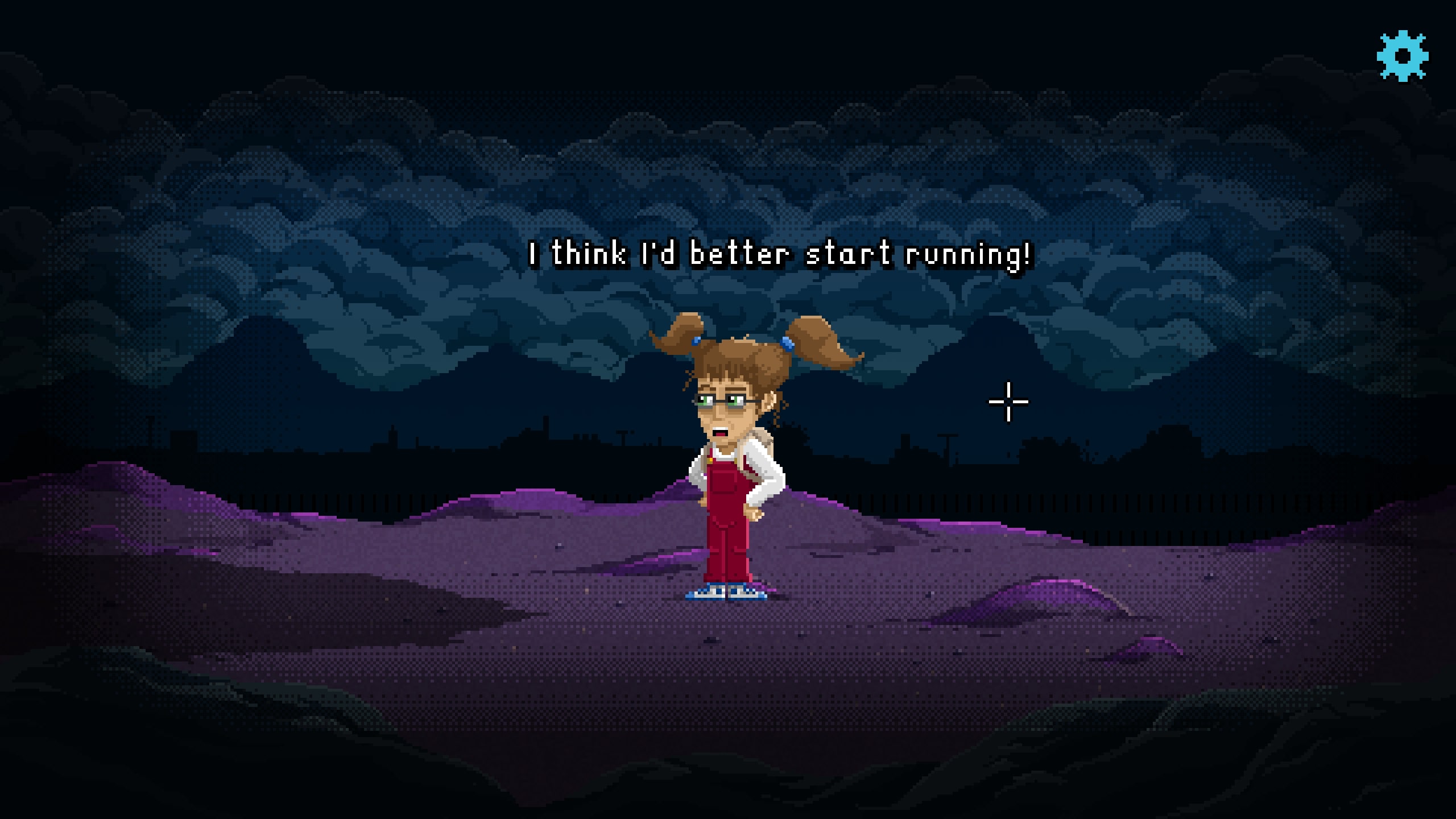
Hardwidge and his wife Emma also drew inspiration from their young son, who would dream about the content in the books he’d read at bedtime. “This is what inspired the main mechanic in Lucy Dreaming which allows Lucy to take control over her dreams using inspiration from real-world books and objects,” adds Hardwidge.
“I did study psychology for three years which may have influenced me subconsciously, although apart from my son’s alarmingly easy-to-influence contextual dreams, I don’t think I’ve actually applied any real-life experience or knowledge to the game,” he explains. “The mechanic for controlling Lucy’s dreams is a complete fabrication — as far as I know — and my own personal dreams are always utterly dull and uninspiring, so I wouldn’t want to force them onto anyone else.”
Also Read
Transmogrify PC Review: The Best Way To Defeat An Enemy
Transmogrify is a game with a strong central idea let down by a shoddy execution resulting in an experience that is…
Defy the Gods as a Witchy Moon Goddess in Hades 2
Supergiant announces Hades 2 for 2023 at the 2022 Game Awards. The sequel promises dark sorcery, witchery, and more frenetic roguelike…
Lucy’s outlook stays pretty level in the face of everything that is thrown at her during the game. “When I dream, I willingly accept everything at face value, however bizarre or implausible it may seem, and Lucy is the same,” explains Hardwidge. “Even when faced with a giant crab or a city full of trolls, she continues as if it was the most normal thing in the world.”
That’s not to say that the narrative of Lucy’s own past, present, and future doesn’t develop. Along the way, Lucy’s quest to discover the cause of her recurring nightmares takes an unexpected turn as she stumbles across a decade-old murder case which seems to be intrinsically tied to her own past.
British comedy shows like Blackadder, Monty Python, and Red Dwarf influenced the sarcastic and surreal sense of humour depicted in Lucy Dreaming.Whether that’s the giant doughnut strewn Streets of Bapchester, posters of Bake That, or delivering a stand-up comedy routine to a club full of carnivorous plants.
“A large amount of point-and-click adventure games employ humour, it can make up for a lot of shortcomings in plot or character development but can also be a powerful way to frame a narrative, even a serious or thought-provoking one,” says Hardwidge. “If it’s handled sensitively, it can break down people’s guards and amplify the impact a story has overall.”
Of all the lines Hardwidge wrote for the game, one remains his favourite. “When Lucy looks at a golden idol similar to the one featured in the opening scenes of Raiders of the Lost Ark in the charity shop, she comments “The tag says “three pounds… I thought it would be lighter than that.” I thought this was particularly clever and multi-layered, but I’ve never seen a single person laugh at it, so I guess it’s not quite as hilarious as I’d hoped.
Developing Lucy Dreaming
As an indie development studio, making Lucy Dreaming was not short of challenges. “The sheer scale of the game was probably what took the most getting used to,” explains Hardwidge. “I had created relatively short adventure games up to this point, and naively thought that a longer game would just involve scaling up proportionally.”
He found that his previous development experience was helpful, but also that he had underestimated the weight of the project. “In November 2020, I took part in a game jam and managed to produce a fully voiced point & click adventure game, Hair of the Dog, in 12 days which was around 30 to 60 minutes long. Using this as a rough guide, I estimated that an eight-hour game would take me roughly a hundred days to develop. It will be obvious to anyone who has even an iota of game development knowledge this was a drastic underestimation,” he recalls.
“Not only is it unhealthy to work at ‘game jam level’ intensity for a prolonged period, but a commercial game needs to be polished to a much higher standard than a jam game, and this polishing took me almost as long as the initial game development itself. This project was a huge learning curve for me, and I will certainly take a much healthier approach to any games I make in the future.”
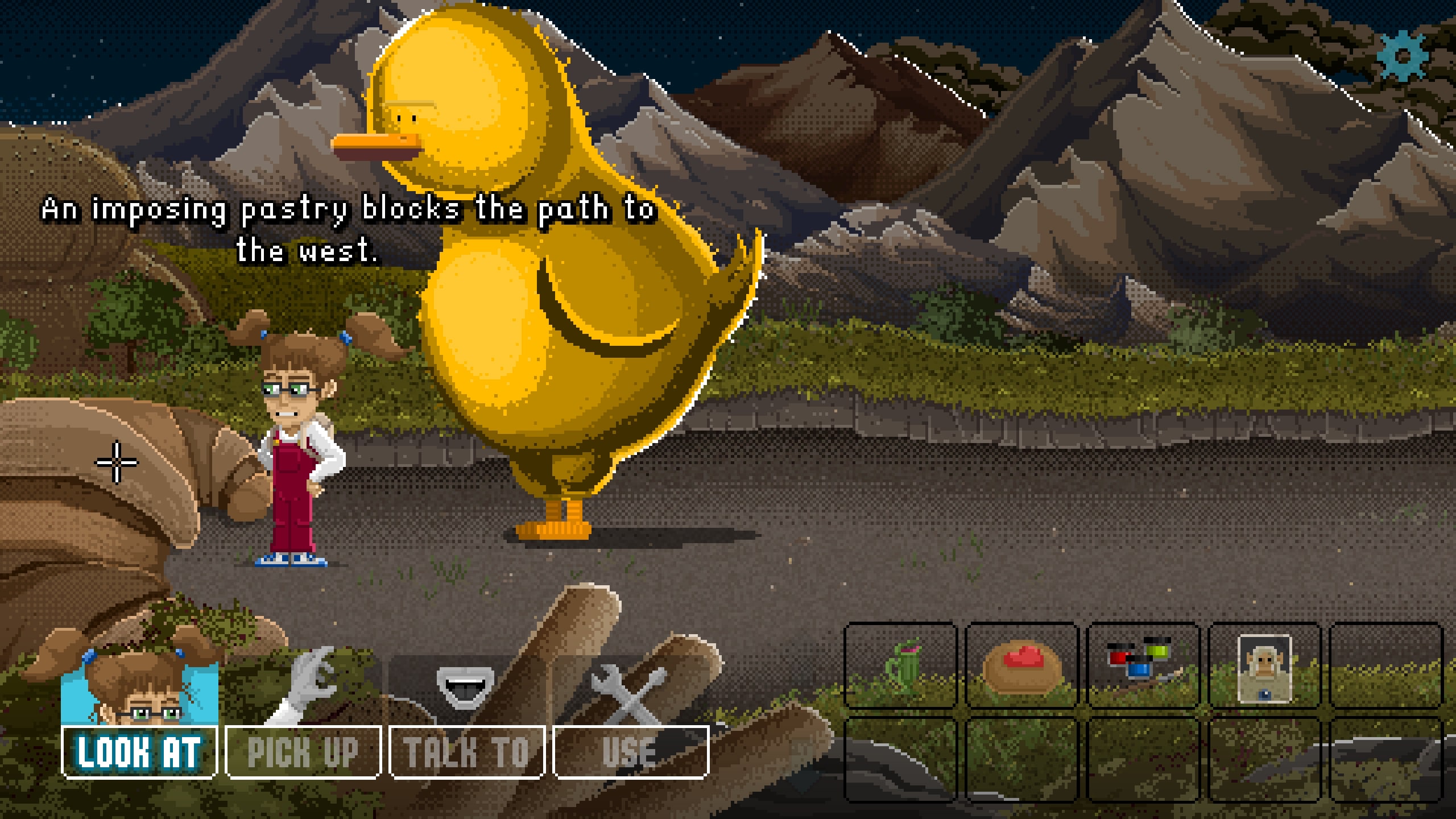
A game comprising over 11,000 lines of text, all the dialogue of Lucy Dreaming was written in the game engine itself, as opposed to being pre-scripted beforehand. Hardwidge believes this helped him to write more spontaneously.
“If I thought too hard about an idea or a line of dialogue, I was in danger of over-analyzing it,” he explains. “I love writing in this way, and it often leads the dialogue and narrative in surprising directions which never would have occurred to me if I had planned it meticulously at the start.”
Visionaire Studio — a popular adventure games engine behind indie games such as Dude, Where is My Beer? and Daedalic Entertainment’s Ken Follet’s The Pillars of the Earth game — was the choice of game engine for Lucy Dreaming. “It supports porting to a variety of different platforms, including mobile devices and consoles, and is purpose-built for 2D point-and-click adventure games,” Hardwidge adds.
“When I first started looking to move away from my HTML-based engine to something more powerful, Visionaire immediately fitted my workflow. The UI is slick and intuitively structured, and it features Lua scripting for more complex, bespoke puzzles.”
He continues: “For the actual game and puzzle design, most of that was either stored in my head or, for the more complex puzzles, a scribble on a piece of paper. I’ve never really got on with highly organized workflows and charts, and even if I do pre-plan an element of the game, I inevitably wander off the path as soon as I get around to implementing it,”
“It’s an organic process — which is sometimes stressful if I write myself into a corner — but giving myself the freedom to adapt the structure and narrative on the fly helps me to generate more original ideas overall.”
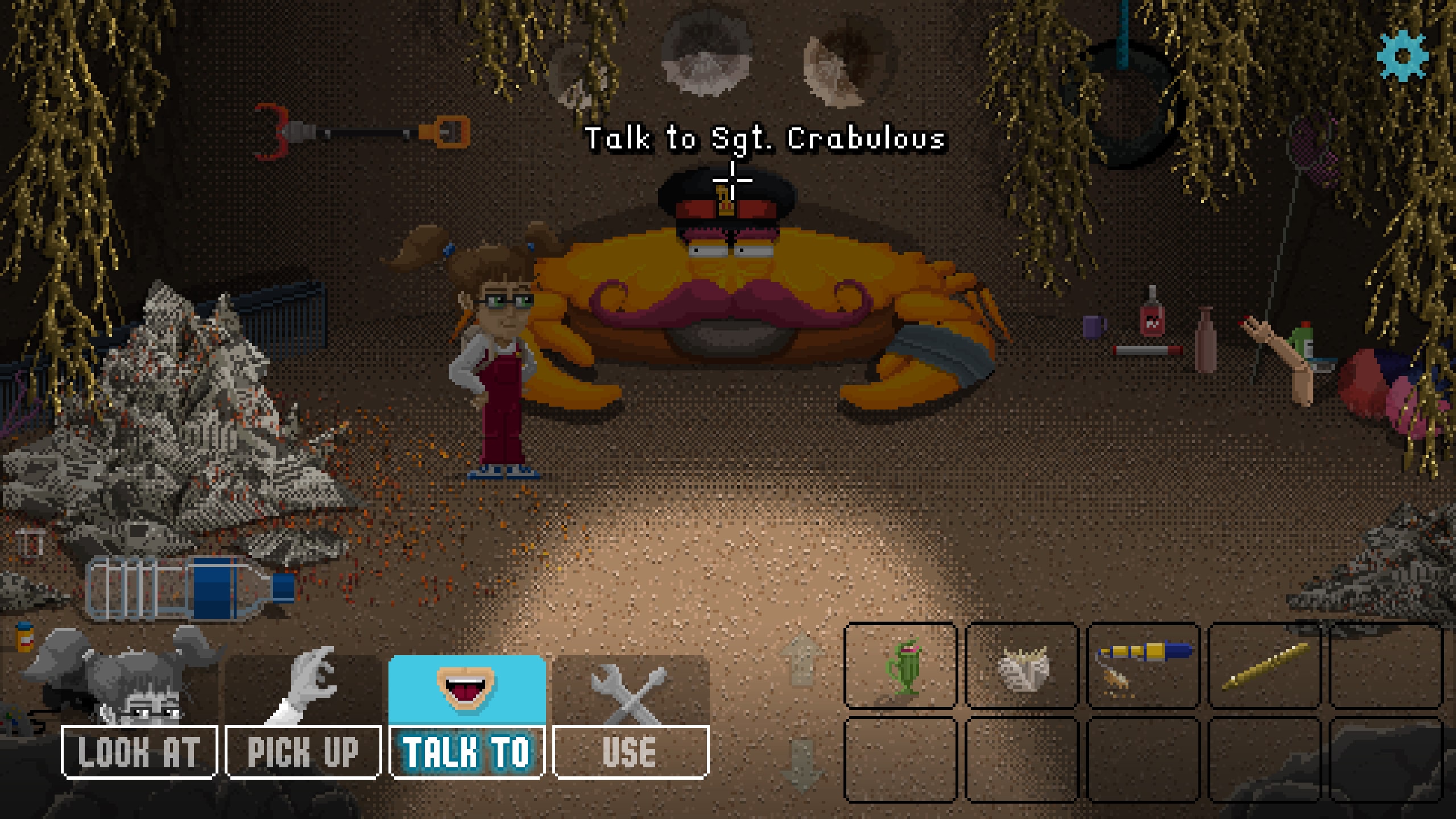
Lucy Dreaming follows a beautiful pixel art style. In terms of creating its artwork, Hardwidge drew from his 25 years of experience in graphic design and selected Photoshop as his main art tool. “I hadn’t really done much pixel art before — unless you include creating custom Windows 3.1 icons in the mid-nineties — but I was familiar enough with the software to be able to figure out most of it, and some nifty shortcuts along the way,” he says.
“Working at digital advertising agencies 20 years ago, I must have created thousands of animated GIF banners for various clients, so I was comfortable using the same software for the keyframe animation, too.”
He cites the ‘stunning’ pixel art created by Mark J. Ferrari in popular indie game Thimbleweed Park as an inspiration, even down to the characters’ head proportions which ‘allow for greater expression and detail’ similar to classic adventure games like Manic Mansion.
Advice for developing an indie point-and-click adventure game
“When you create a game and put your heart and soul into it, tester feedback can be hard to hear. It may challenge ideas you hold dear, and sometimes feels like it could compromise your creative vision. You will need to choose when to stick to your guns and when to change,” says Hardwidge.
“It’s a hard line to draw, and I would never recommend that you take on board every single suggestion, but if you are planning to release your game publicly you need to be prepared for the fact that it won’t be everyone’s cup of tea, and a thorough and balanced testing period will give you a taste of what is likely to come.”
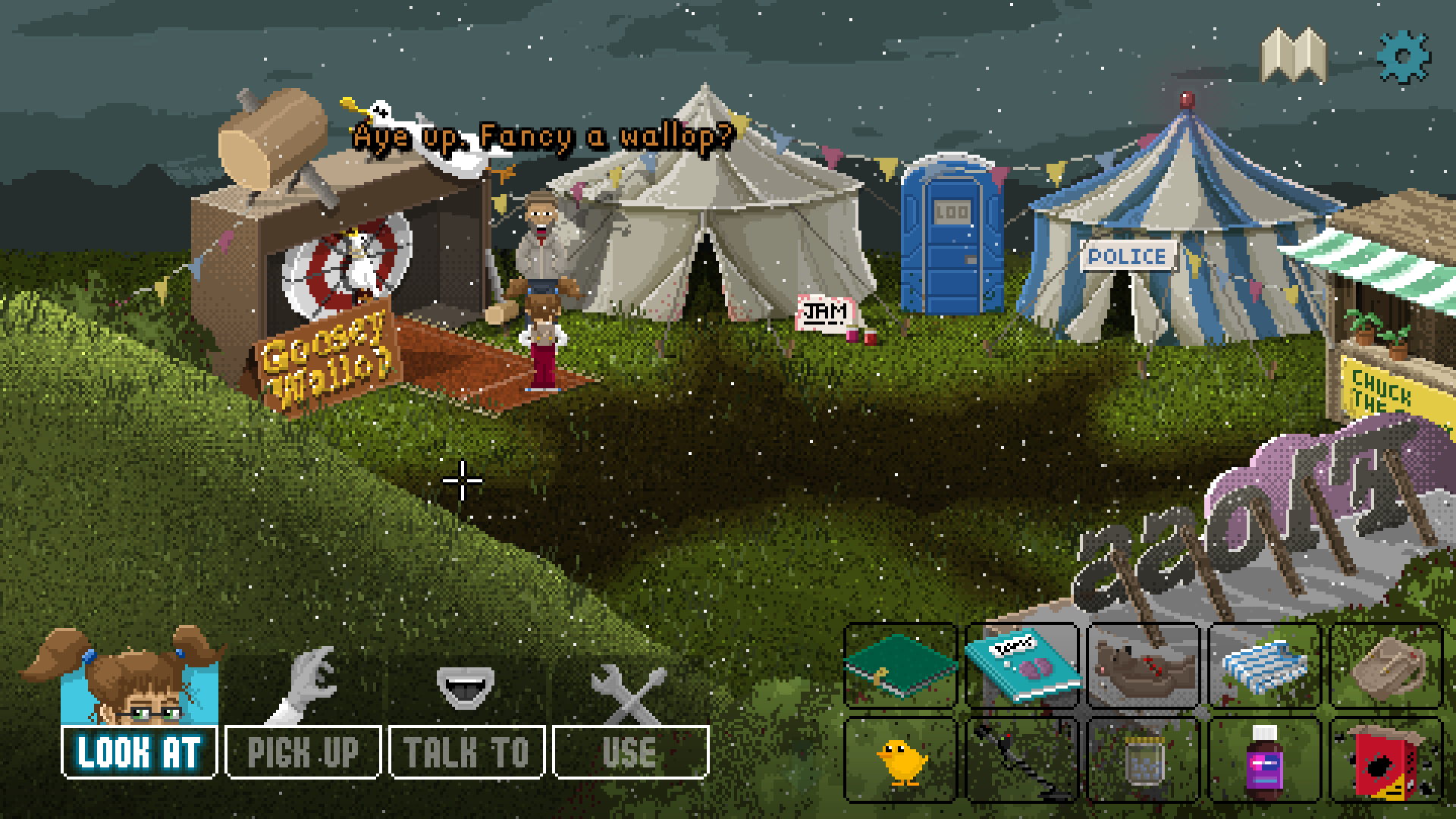
Feedback, Hardwidge maintains, is a crucial part of indie games development. “Ultimately, I want people to enjoy my games, that’s my motivation for creating them so I always make sure I listen to all feedback and assess it objectively. If I end up changing my game based on someone else’s opinion, I see this more as a collaboration than compromise and, invariably, the game is made better for it.”
He mentions the Indie Game Fans review of Lucy Dreaming as an example of utilising feedback. “One of the negative points made was about the game’s ending. This was disappointing but was not an isolated comment,” he says. “A few other people had approached me since the game’s release to tell me the same thing. As a result of this, I took a serious and objective look at the ending and subsequently changed it.”
“It’s still possible to access the original, and many people have played both, preferring the new version. Since then, I have received more positive comments about the game overall. If I had dug my heels in and refused to change it, fewer people would be enjoying it, and I would have failed in my goal.”
All about indie developer Tall Story Games

Lucy Dreaming indie game developer Tall Story Games came together in an unexpected way. “I work in marketing as a day job, primarily working on branding, websites and other digital bits and bobs,” says Hardwidge. “I work with my wife Emma and we have been running our own digital marketing agency for the past twelve years.”
In 2019 one of their clients, The Roman Baths Museum in Bath, UK, approached the pair to create a game to complement a narrative video they had put together. Having been a fan of adventure games since they were young, the two successfully pitched the idea of a point-and-click adventure.
“This gave us three months to write and develop our first, short, web-based adventure game,” relays Hardwidge. “At this time, we had never heard of indie game development or game engines, so I built the entire game the only way that I knew how, in HTML and JavaScript, using Dreamweaver and Notepad.” The game was called Where’s my Cloak? and is still available to play on Itch.io.”
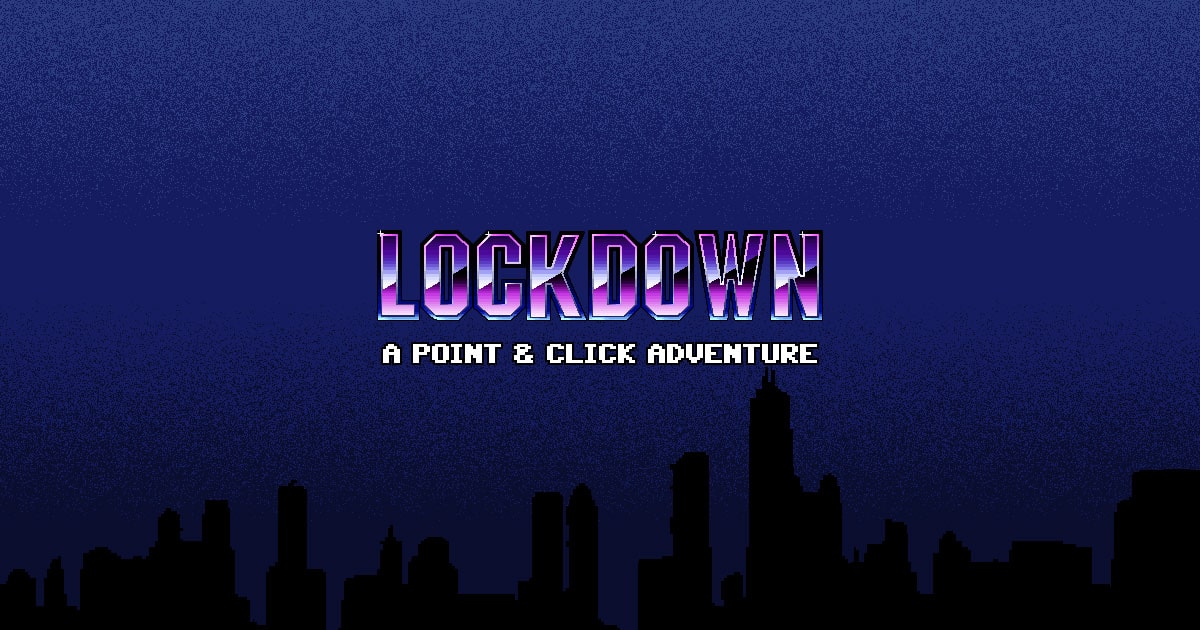
“A year later COVID hit and, during the UK lockdown, a lot of our work went quiet offering the chance to dive into game development once again,” says Hardwidge. “I used the same HTML-based engine created the year before and wrote a new point-and-click game called Lockdown, a short adventure about a young virologist and single mother trying to balance her work with homeschooling, social media pressure and a lack of toilet paper while confined to her home.” Lockdown is available to play for free online.
“We promoted Lockdown on Twitter and it was noticed by a couple of Twitch streamers who added it to their playlist,” he concludes. “This was when we discovered an entire community of indie adventure game developers and were introduced to game engines and a huge variety of professional game dev tools. It inspired us to start working on a full-length adventure game, and that is when Tall Story Games and Lucy Dreaming was born.”

